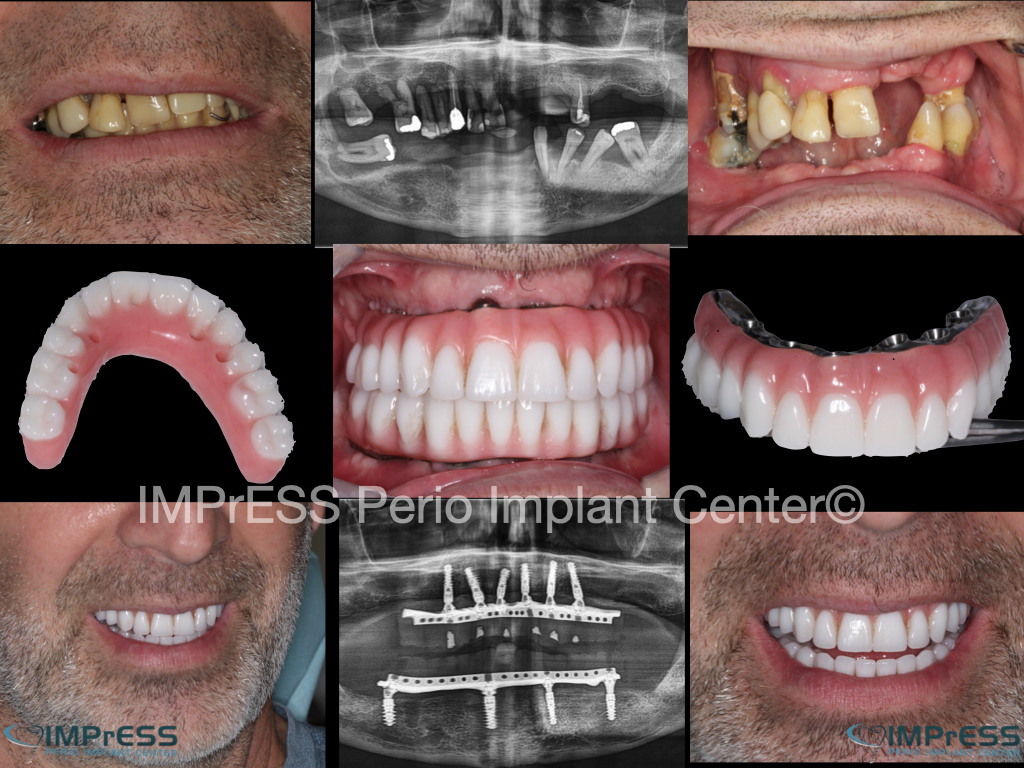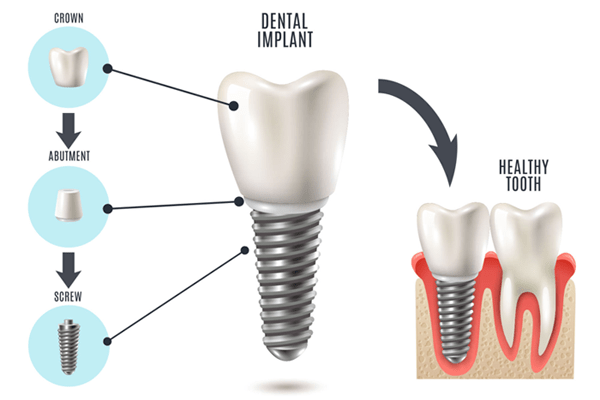Friendly Family Dentist for all ages.
Friendly Family Dentist for all ages.
Blog Article
Check Out the Different Kinds of Oral Implants Readily Available Today
In the realm of dental care, oral implants have become a robust solution for missing teeth, supplying both visual appeal and useful benefits. The array of options, ranging from solitary tooth implants to mini oral implants, caters to diverse needs and circumstances. This conversation will guide you with the different kinds of implants, clarifying their unique features and benefits. This exploration could potentially brighten the course to a renewed smile, so why not continue?
Recognizing the Fundamentals of Dental Implants
The dental implant is operatively put into the jawbone, giving a durable base for supporting one or even more false teeth, known as crowns. Dental implants are renowned for their long life and natural look, commonly identical from genuine teeth, increasing individuals' self-confidence and improving their general dental wellness. Thus, comprehending oral implants is the initial step towards checking out various types and their benefits.
Single Tooth Dental Implants: An Introduction
Solitary tooth oral implants offer as a reliable solution for people that have lost a single tooth due to injury, degeneration, or illness. These implants are designed to imitate the feature and appearance of a natural tooth, providing the individual with a long lasting, lasting substitute. Single tooth dental implants not only bring back the aesthetics of the smile yet also avoid bone loss, preserve face structure, and make certain proper function of the mouth.
Full Mouth Dental Implants: Comprehensive Remedy for Missing Teeth
While solitary tooth oral implants are an efficient solution for the loss of a solitary tooth, people that have actually experienced extensive missing teeth require an even more thorough approach. Complete mouth oral implants provide such a remedy, resolving several missing teeth or even a whole set of teeth, both upper and lower. This method entails placing numerous implants right into the jawbone as assistances for a complete bridge or denture. The result is a natural-looking, functional collection of teeth that are strongly anchored in resource location. This procedure can substantially boost oral performance and appearances, changing the patient's smile and enhancing their top quality of life. It calls for cautious planning and a knowledgeable dental cosmetic surgeon due to its complexity.
All-on-4 Oral Implants: A Cutting-edge Method
In the world of dental implantology, the All-on-4 approach stands as an innovative advancement. This technique uses four tactically placed implants to sustain an entire arc of teeth, eliminating the demand for one dental implant per tooth. It supplies a much more reliable and affordable option for those with significant missing teeth. The procedure's name, "All-on-4," highlights this benefit, with all teeth mounted on simply 4 implants. Particularly advantageous for people with low bone thickness, All-on-4 prevents the need for bone grafting, which is commonly required in traditional implant treatments. Hence, it lowers both surgical time and healing period. With its special mix of performance, price, and convenience, the All-on-4 supplies an appealing choice in the large spectrum of dental implant alternatives.

Mini Dental Implants: A Much Less Invasive Option
The realm of oral implants continues to increase with the introduction of less invasive options like mini dental implants (dental practice). These are smaller sized than typical implants and are generally made use of when the individual's jawbone sites can not sustain larger ones. Despite this, mini dental implants have actually shown to be a considerable innovation in dentistry, using a less intrusive and possibly more obtainable remedy for tooth substitute.

Exactly How to Select the Right Dental Implant for Your Demands
Given the myriad of dental implant choices readily available today, making the right selection for your one-of-a-kind great site dental needs can seem overwhelming. Particular conditions, like unrestrained diabetes or osteoporosis, can prevent the success of dental implants. Some implants are much better suited for replacing single teeth, while others function best for several missing teeth.
Verdict

Report this page